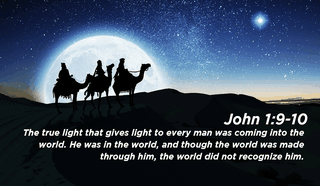
Change Translation
- Recent Translations
- All Translations
John 1:18
Share
Listen to John 1:18
Settings
Scripture Text Size
18
Deum nemo vidit umquam unigenitus Filius qui est in sinu Patris ipse enarravit
John 1:18 In-Context
16
et de plenitudine eius nos omnes accepimus et gratiam pro gratia
17
quia lex per Mosen data est gratia et veritas per Iesum Christum facta est
18
Deum nemo vidit umquam unigenitus Filius qui est in sinu Patris ipse enarravit
19
et hoc est testimonium Iohannis quando miserunt Iudaei ab Hierosolymis sacerdotes et Levitas ad eum ut interrogarent eum tu quis es
20
et confessus est et non negavit et confessus est quia non sum ego Christus
The Latin Vulgate is in the public domain.

